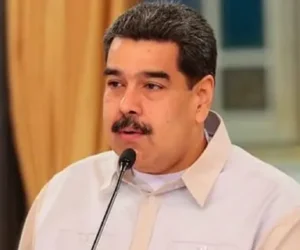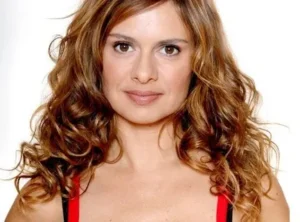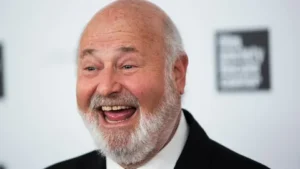You know that moment when you realize someone’s life story reads like a Netflix series that’s equal parts royal drama, military heroism, and cautionary tale? That’s Prince Andrew in a nutshell.
I remember watching the BBC Newsnight interview in 2019, mouth literally agape, thinking, “This cannot be real.” But it was. And it marked one of the most spectacular falls from grace in modern royal history.
Prince Andrew – the Duke of York, third child of Queen Elizabeth II, Falklands War veteran, and now one of the most controversial figures in the British monarchy – has lived a life that’s shifted from privilege to service to scandal. His story isn’t just about one man; it’s about how institutions handle their own when things go spectacularly wrong.
Let me walk you through the complete biography of Prince Andrew, from palace walls to war zones, from wedding bells to scandal headlines. Trust me, you’ll want to stick around for this one.
The Beginning: Born Into Privilege (But Not the Throne)
Who is Prince Andrew and What is His Full Title?
Prince Andrew was born Andrew Albert Christian Edward on February 19, 1960, at Buckingham Palace. Picture this: you’re born in an actual palace, your mom is the Queen of England, your grandmother is the Queen Mother, and your life is documented by photographers before you can even hold your head up.
He arrived as the third child and second son of Queen Elizabeth II and Prince Philip, Duke of Edinburgh. At birth, he was second in line to the throne, right behind his older brother Charles. The title situation? He was simply “The Prince Andrew” until his wedding day in 1986, when his mother bestowed upon him the title Duke of York – a title with its own complicated history (it’s traditionally given to the monarch’s second son).
His full style and title became: His Royal Highness The Prince Andrew, Duke of York, Earl of Inverness, and Baron Killyleagh. That’s a mouthful, right?
Prince Andrew’s Early Life and Education
The Prince Andrew early life and education reads like a blueprint for royal upbringing, but with some interesting twists.
Unlike his older siblings who had a more traditional (read: stuffy) education at home, Andrew attended Heatherdown Preparatory School in Berkshire and later Gordonstoun School in Scotland – the same school his father and brother Charles attended. Gordonstoun had a reputation for being… let’s call it “character-building.” Think cold showers, cross-country runs, and minimal comfort. It was meant to toughen up royal boys.
Here’s what made Andrew different: while Charles famously hated Gordonstoun, Andrew reportedly thrived there. He wasn’t the sensitive, artistic type like his older brother. Andrew was more sporty, more confident, more conventionally “blokey” – and this would shape his entire trajectory.
After Gordonstoun, Andrew took a gap year that included time at Lakefield College School in Canada, teaching English and history. But unlike many royals who go to university, Andrew had his sights set on something else entirely: the military.
From Palace to Frontline: The Military Years
What Was Prince Andrew’s Military Career?
This is where Andrew’s story gets genuinely impressive. His Prince Andrew military career wasn’t just ceremonial ribbon-cutting and fancy uniforms – though there was plenty of that too.
In 1979, at age 19, Andrew joined the Royal Navy. He wasn’t just playing soldier; he trained as a Prince Andrew helicopter pilot, learning to fly the Gazelle and later the Sea King helicopter. Think about that for a second – learning to fly military helicopters isn’t something you do because your mom made you. It requires real skill, dedication, and frankly, guts.
His military timeline:
- 1979: Joined Britannia Royal Naval College, Dartmouth
- 1980: Completed helicopter pilot training
- 1981: Assigned to 820 Naval Air Squadron aboard HMS Invincible
- 1982: Served in the Falklands War
- 1984-1986: Various squadron assignments
- 1986-1992: Flight commander roles
- 1992-2001: Continued service, reaching rank of Commander
- 2001: Retired from active service
- 2015: Promoted to Vice Admiral (honorary)
- 2022: Stripped of honorary military titles
What Was Prince Andrew’s Role in the Falklands War?
The Prince Andrew Falklands War service is probably the most legitimate chapter of his public life, and it’s worth understanding because it shaped how Britain viewed him for decades.
In April 1982, Argentina invaded the Falkland Islands, a British territory in the South Atlantic. Britain sent a naval task force, and aboard HMS Invincible was Sub-Lieutenant Prince Andrew, second in line to the throne, flying Sea King helicopters into an actual war zone.
Let me be clear: this wasn’t symbolic. The Palace reportedly wanted to pull him out, but Andrew insisted on going, and ultimately the Queen agreed. During the conflict, he:
- Flew anti-submarine and anti-surface warfare missions
- Operated as a decoy for Exocet missiles (basically flying around trying to draw enemy fire away from ships)
- Participated in casualty evacuation missions
- Flew in dangerous conditions during attacks on his ship
When HMS Invincible was attacked, Andrew was flying. When you think about it, he was genuinely putting his life on the line. Argentinian forces knew a royal was aboard and specifically targeted the ship. Andrew could have died. Multiple times.
For this service, he became something of a national hero. The British public loved the idea of a prince who didn’t just wear the uniform for photographs but actually served. It was his golden moment.
The Playboy Prince: Romance, Marriage, and Divorce
The Bachelor Years
Between the Falklands War and his marriage, Andrew earned a nickname: the “Playboy Prince.” The British tabloids had a field day documenting his romantic life, which included relationships with various actresses, models, and socialites.
He was young, a war hero, royal, and single. The press ate it up. Every date was front-page news. Every girlfriend was scrutinized. It was Princess Diana-level media attention, except Andrew seemed to enjoy it more.
Who Was Prince Andrew Married to and Does He Have Children?
On July 23, 1986, Prince Andrew married Sarah Ferguson – known universally as “Fergie” – at Westminster Abbey. The wedding was spectacular. The romance seemed genuine. Sarah was bubbly, red-haired, and more relatable than the typical royal bride. People loved her.
When they married, Andrew was created Duke of York, and Sarah became the Duchess of York. They seemed perfect together – both outgoing, both fun-loving, both more comfortable with informality than royal protocol demanded.
Their children:
- Princess Beatrice Elizabeth Mary (born August 8, 1988)
- Princess Eugenie Victoria Helena (born March 23, 1990)
The daughters are currently ninth and tenth in line to the throne, and by all accounts, Andrew has been a devoted father. Whatever else you can say about him, his relationship with his daughters appears genuinely loving.
The Prince Andrew Divorce from Sarah Ferguson
But the fairy tale didn’t last. The Prince Andrew divorce from Sarah Ferguson became official in May 1996, though they had separated in 1992.
The breakup was messy and public. Fergie was photographed in compromising situations. The tabloids went wild. The Palace was mortified. It was everything a royal divorce shouldn’t be – sensational, undignified, and spectacular.
Here’s the twist though: unlike most divorced couples, Andrew and Sarah remained remarkably close. They continued living together at Royal Lodge in Windsor, co-parenting their daughters, and maintaining what they described as a “modern family” arrangement. Even today, they reportedly still share the same house. Make of that what you will.
The Trade Envoy Years: Controversy Brewing
Prince Andrew Trade Envoy Role
After retiring from active naval service in 2001, Andrew needed a job. His solution? Becoming the UK’s Special Representative for International Trade and Investment – essentially a Prince Andrew trade envoy role that saw him traveling the world promoting British business interests.
From 2001 to 2011, he globe-trotted constantly, meeting with business leaders, attending conferences, and opening doors for British companies. On paper, it sounds great. In practice, it was controversial from the start.
The problems:
- Excessive spending: Andrew’s travel expenses were astronomical. Private jets, luxury hotels, lavish entertainment – all on the taxpayer’s dime.
- Questionable associates: He developed relationships with controversial businessmen and politicians, including some with dubious reputations.
- The nickname “Airmiles Andy”: The press started calling him this because of his expensive travel habits.
- Conflicts of interest: Questions arose about whether he was helping British business or his own connections.
In 2011, after particularly damaging revelations about his friendship with a convicted sex offender named Jeffrey Epstein, Andrew was forced to resign from the trade envoy position. It should have been a warning sign. It wasn’t heeded.
The Scandal That Changed Everything
What is the Jeffrey Epstein Scandal and How is Prince Andrew Connected?
Okay, deep breath. This is where Andrew’s story takes a dark turn, and there’s no way to sugarcoat it.
Jeffrey Epstein was a wealthy American financier who was convicted in 2008 of soliciting prostitution from a minor. In 2019, he was arrested again on federal charges of sex trafficking of minors. He died in jail that August under circumstances officially ruled suicide but widely questioned.
Prince Andrew’s connection to Jeffrey Epstein:
Andrew and Epstein became friends in the 1990s, reportedly introduced through Ghislaine Maxwell, a British socialite and Epstein’s longtime associate. They were photographed together multiple times. Andrew stayed at Epstein’s homes in New York, Florida, and the Caribbean. He flew on Epstein’s private jet, nicknamed the “Lolita Express.”
Even after Epstein’s 2008 conviction, Andrew maintained the friendship. In 2010, he was photographed walking with Epstein in Central Park – a picture that would come back to haunt him.
The Virginia Giuffre Allegations
Then came the bombshell. Virginia Giuffre (formerly Virginia Roberts) alleged that she was trafficked by Epstein and forced to have sexual encounters with powerful men, including Prince Andrew. She claimed she was 17 at the time – below the age of consent in Florida (though not in the UK).
She provided a photograph showing herself, Prince Andrew, and Ghislaine Maxwell together at Maxwell’s London home. Andrew’s arm is around her waist. She looks young. He looks… exactly like himself.
Prince Andrew’s response:
- Denied the allegations completely
- Claimed he had no recollection of meeting Virginia Giuffre
- Questioned the authenticity of the photograph
The palace issued denials. Andrew’s lawyers issued denials. But the story wouldn’t go away.
What Was the Disastrous BBC Newsnight Interview?
In November 2019, Prince Andrew made a decision that would become a masterclass in what NOT to do in a crisis: he agreed to a television interview with BBC Newsnight journalist Emily Maitlis.
The Prince Andrew BBC Newsnight interview was supposed to clear his name. Instead, it destroyed what remained of his reputation.
Why the interview was catastrophic:
- No empathy for victims: Andrew expressed no sympathy for Epstein’s victims. Zero. It was stunning.
- Bizarre excuses: He claimed he couldn’t have been with Virginia Giuffre on the night in question because he was at a children’s party at Pizza Express in Woking. The specificity was meant to sound credible but came across as absurd.
- Medical impossibility defense: Andrew claimed he couldn’t have been sweating (as Giuffre alleged) because he had a medical condition from the Falklands War that prevented him from sweating. Doctors immediately called this nonsense.
- The photograph: He questioned whether the photo was real, suggesting his fingers looked wrong. Forensic experts said it appeared authentic.
- Tone-deaf answers: When asked if he regretted the friendship with Epstein, Andrew said the connections he made through Epstein were “beneficial” and “useful.”
I watched it live. My jaw dropped multiple times. It was like watching a slow-motion car crash where the driver keeps making it worse. The British public was shocked. The global media went into overdrive. Memes were born.
Within days, Andrew was facing unprecedented criticism.
Why Did Prince Andrew Step Back from Royal Duties?
Four days after the interview aired, Andrew released a statement announcing he was Prince Andrew stepping back from duties “for the foreseeable future.”
But that wasn’t the end. In January 2022, facing a civil lawsuit from Virginia Giuffre in the United States, things escalated:
- Prince Andrew stripped of titles: The Queen stripped him of his military affiliations and royal patronages
- He could no longer use “His Royal Highness” in any official capacity
- He was essentially banished from public royal life
The Prince Andrew Virginia Giuffre settlement came in February 2022. Andrew agreed to settle the civil lawsuit for an undisclosed amount (reported to be £12 million). Importantly, the settlement wasn’t an admission of guilt, but it effectively ended any chance of Andrew returning to public life.
To be clear: Andrew has never been criminally charged. He maintains his innocence. But in the court of public opinion? He was convicted the moment that interview aired.
Life After the Fall: Where Is Prince Andrew Now?
Where Does Prince Andrew Currently Live?
Prince Andrew Royal Lodge Windsor is his current residence – a 30-room mansion in Windsor Great Park that he leases from the Crown Estate. It’s a far cry from prison, but it’s also a form of gilded exile.
The residence is reportedly shared with his ex-wife Sarah Ferguson, in their unconventional living arrangement. Recent reports suggest King Charles wants Andrew to move to the smaller Frogmore Cottage (formerly Harry and Meghan’s UK home), but Andrew is resisting. The property dispute has become symbolic of his diminished status.
What is Prince Andrew’s Current Net Worth and Financial Situation?
The Prince Andrew net worth 2025 situation is complicated. Estimates suggest he’s worth around £5 million, which sounds like a lot until you consider:
- He lost his £249,000 annual allowance from the Queen
- He has no official income from royal duties
- He spent a reported £12 million on the Virginia Giuffre settlement
- He has substantial ongoing expenses maintaining Royal Lodge
- His security costs are significant
Reports suggest King Charles provides financial support, but the exact arrangements are private. Andrew’s financial situation is a shadow of what it once was – a prince who once lived entirely on public and royal funds now scrambling to maintain his lifestyle.
Prince Andrew and King Charles Relationship
The Prince Andrew and King Charles relationship is reportedly strained but functional. They’re brothers, after all, with decades of shared history.
Charles, now King, faces a difficult balancing act: supporting his brother personally while protecting the institution of the monarchy. Reports suggest:
- Charles provides financial support to Andrew
- They communicate, but aren’t particularly close
- Charles is firm that Andrew will not return to public duties
- The King is sensitive to public opinion about his brother
It’s a family drama playing out on the world stage, with constitutional implications.
What is Prince Andrew’s Relationship with the Current Royal Family?
Prince Andrew’s relationship with the current Royal Family is defined by his absence. He’s the family member who shows up for private gatherings but is conspicuously missing from public events.
His current status:
- Attends some family occasions (Easter church service, private celebrations)
- No official royal duties whatsoever
- No public engagements
- Maintains close relationships with his daughters
- Still lives on Crown property
- Eighth in line to the throne (though this is purely ceremonial)
Prince Andrew public appearances 2025 are rare and usually cause controversy. When he does appear – even at church – it makes headlines. Every appearance is analyzed, criticized, and debated. He’s become toxic to the royal brand.
Prince Andrew Relationship with Queen Elizabeth
Before her death in September 2022, Prince Andrew relationship with Queen Elizabeth was described as close. He was reportedly her favorite child – a fact that sometimes frustrated his siblings.
The Queen stood by Andrew throughout the scandals, though she did strip him of titles. She reportedly provided financial support and emotional support until her death. Some commentators criticized her for this, suggesting she enabled his behavior. Others saw a mother trying to support her son during a crisis.
Her death removed Andrew’s most powerful protector within the royal family.
What Role Does Prince Andrew Play in the Royal Succession?
Let’s talk numbers. Prince Andrew currently stands eighth in the line of succession to the British throne:
Current line of succession (as of 2025):
- Prince William, Prince of Wales
- Prince George of Wales
- Princess Charlotte of Wales
- Prince Louis of Wales
- Prince Harry, Duke of Sussex
- Prince Archie of Sussex
- Princess Lilibet of Sussex
- Prince Andrew, Duke of York
- Princess Beatrice
- Sienna Elizabeth Mapelli Mozzi (Beatrice’s daughter)
The chances of Andrew ever becoming king are virtually zero. All of King Charles’s descendants, plus Prince Harry and his children, would need to be unable to serve. It’s theoretical but not realistic.
Still, he remains a Counsellor of State – one of five people who can perform official duties if the monarch is unable to do so. This has been controversial given his status, with suggestions he should be removed from this role.
The Books, The Media, The Legacy
What Are the Most Recent Biographies Written About Prince Andrew?
If you want to deep-dive into Prince Andrew authorized and unauthorized biographies, there’s no shortage of material.
“Entitled: The Rise and Fall of the House of York” by Andrew Lownie (August 2025) is the most recent comprehensive unauthorized biography. It’s been called “the most devastating royal biography ever written” and covers Andrew’s entire life with unflinching detail.
Other notable works include:
- “Prince Andrew: Epstein, Maxwell and the Palace” by Nigel Cawthorne
- Various chapters in broader royal family books like “The Palace Papers” by Tina Brown
- Documentaries including “Prince Andrew: Banished” and obviously, the infamous Newsnight interview itself
The media fascination with Andrew hasn’t waned. If anything, it’s intensified. Every new revelation, every court document, every photograph becomes instant news.
Understanding the Bigger Picture
What This Scandal Means for the Monarchy
Andrew’s fall isn’t just about one man. It’s about institutional accountability, privilege, and whether ancient systems can function in modern democracies.
Questions his scandal raises:
- Should royals face different justice standards?
- Can the monarchy survive scandals of this magnitude?
- What happens when institutions protect their own?
- How much power should unelected, hereditary figures hold?
The monarchy’s response – slow at first, then decisive – shows an institution trying to adapt. But the damage lingers.
The Human Element
Here’s where I’ll be controversial: Andrew is still a human being. A deeply flawed one, possibly a criminal one (though never charged), but human nonetheless. His daughters love him. His ex-wife stands by him. His mother loved him until her death.
Does this excuse anything? Absolutely not. Does it complicate the narrative? Yes.
The most dangerous thing we can do is reduce complex human stories to simple good-or-evil narratives. Andrew made choices – some honorable (his military service), some questionable (his friendships and business dealings), and some potentially criminal (the allegations he denies).
Understanding the full biography of Prince Andrew means grappling with these contradictions.
The Timeline: A Life in Dates
| Year | Event |
|---|---|
| 1960 | Born at Buckingham Palace, second in line to throne |
| 1979 | Joins Royal Navy, begins helicopter pilot training |
| 1982 | Serves in Falklands War aboard HMS Invincible |
| 1986 | Marries Sarah Ferguson; created Duke of York |
| 1988 | Princess Beatrice born |
| 1990 | Princess Eugenie born |
| 1992 | Separates from Sarah Ferguson |
| 1996 | Divorce from Sarah Ferguson finalized |
| 2001 | Retires from Royal Navy; becomes trade envoy |
| 2010 | Photographed with Jeffrey Epstein in Central Park |
| 2011 | Resigns as trade envoy amid Epstein controversy |
| 2015 | Virginia Giuffre allegations become public |
| 2019 | BBC Newsnight interview airs; steps back from duties |
| 2022 | Stripped of military titles and HRH; settles lawsuit |
| 2022 | Queen Elizabeth II dies (September) |
| 2025 | Continues living in relative seclusion at Royal Lodge |
Lessons from a Life of Privilege and Scandal
What can we learn from Prince Andrew’s story? Here are my takeaways:
1. Privilege doesn’t equal wisdom. Being born royal gave Andrew opportunities most people never get. It didn’t make him smart about using them.
2. Your associations matter. The company you keep defines you, whether you like it or not. Andrew’s friendship with Epstein destroyed his reputation even if he never did anything illegal.
3. Crisis management matters. That interview was a masterclass in how NOT to handle allegations. Proper PR advice, followed carefully, might have salvaged something. Instead, Andrew seemed to think he could charm his way through.
4. Institutions change slowly. The royal family’s initial response was to protect Andrew. Only massive public pressure forced real consequences.
5. Accountability matters. Whether Andrew faced legal consequences or not, he faced social and professional ones. That matters.
The Unanswered Questions
Despite everything written, filmed, and discussed about Prince Andrew, key questions remain:
- What exactly was the nature of his relationship with Jeffrey Epstein?
- Did he know about Epstein’s crimes?
- Is Virginia Giuffre’s account accurate?
- Will Andrew ever face criminal charges?
- Could he ever return to public life?
- What do his daughters really think?
- Will more allegations emerge?
These questions may never be fully answered. And that uncertainty is part of why the story continues to fascinate.
Where Does the Story Go from Here?
As I write this in late 2025, Prince Andrew remains in limbo. Not quite exiled, not quite accepted. Living in a mansion but largely alone in terms of public support. Still royal by blood but stripped of royal dignity.
His future likely holds:
- Continued seclusion at Royal Lodge
- Rare public appearances that generate controversy
- Ongoing media scrutiny
- Further biographical works and documentaries
- Possible new revelations as documents are unsealed
- No return to public royal duties
The biography of Prince Andrew isn’t finished. He’s still alive, still generating headlines, still controversial. But the arc of his story seems clear: from privilege to service to scandal, with no redemption arc in sight.
Final Thoughts: A Modern Morality Tale
In ancient Greek drama, this would be called a tragedy – a man brought low by his own choices and character flaws. In modern terms, it’s a cautionary tale about privilege, accountability, and the limits of institutional protection.
Prince Andrew had advantages most people can only dream of: wealth, status, opportunities, a devoted family, genuine military heroism to his credit. He threw it away through poor judgment, questionable associations, and an inability to grasp how the world had changed.
The days when royals could simply issue denials and expect the public to bow and move on are gone. We live in an age of accountability, where ancient privileges face modern scrutiny. Andrew found this out the hard way.
His story isn’t just about one flawed individual. It’s about power, justice, class, and whether anyone – even princes – should be above scrutiny and consequence.
What do I think? I think Andrew’s military service was genuine and admirable. I think he made terrible choices in friends and associations. I think that interview was genuinely shocking in its tone-deafness. I think he’s paid a heavy price in reputation, status, and income. And I think questions remain that deserve answers.
The complete biography of Prince Andrew is still being written, one controversial chapter at a time. History will judge him not by his birth or his titles, but by his choices and their consequences.
And that, perhaps, is how it should be.
What are your thoughts on Prince Andrew’s story? Do you think justice has been served, or do questions remain? Share your perspective in the comments below.








